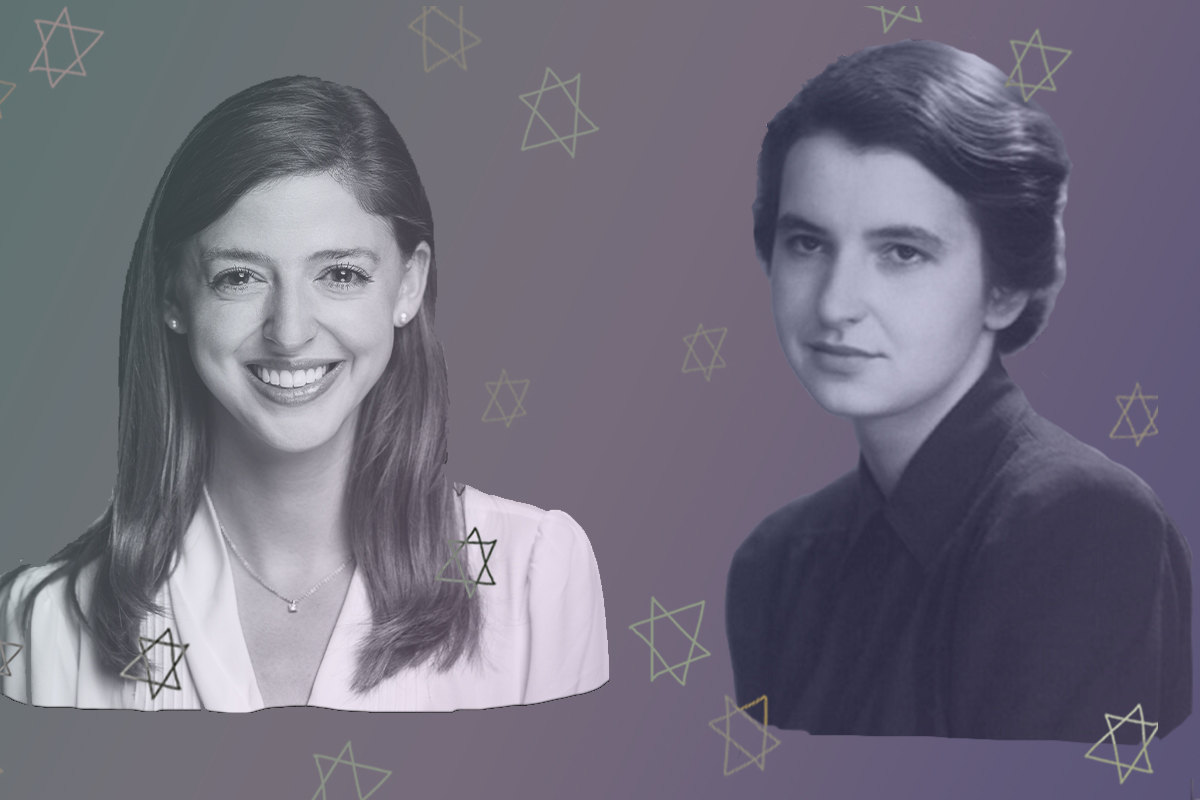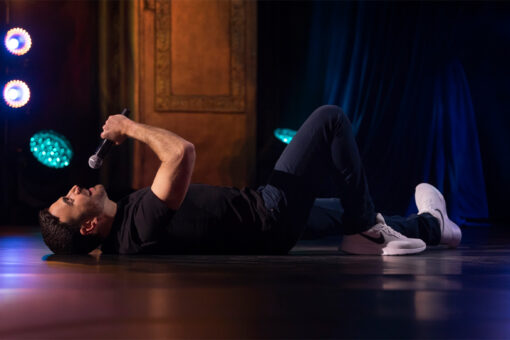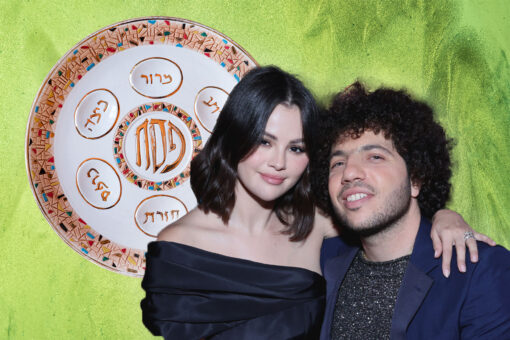The fact that I know about Rosalind Franklin feels purely generational, a product of starting high school in 2014, a month before Emma Watson went viral for saying that “feminism is not a dirty word.”
Toward the beginning of my far-from-radical feminist awakening, my 9th grade biology class watched a documentary about Rosalind Franklin during our lab period. The image was grainy on the projector screen, full of black and white pictures and talking heads with hard-to-parse British accents. But the film complicated the narrative we learned a week prior in our DNA unit: James Watson and Francis Crick built the first model of DNA and won the Nobel Prize for it, but they did so at the expense of Rosalind Franklin, the Jewish woman whose pivotal x-ray photographs first illuminated DNA’s double helix structure. She died, uncredited, without knowing Watson and Crick (with the help of Rosalind’s colleague and adversary, Maurice Wilkins) had stolen her work.
Madeline Myers’ new musical, Double Helix, not only reasserts Rosalind Franklin’s place in history — it lets her sing. I met Madeline after reading an early draft of the musical this past summer, and I have been eagerly cheering on Double Helix ever since. In November, she invited me to a virtual reading where a particularly Jewy group of Broadway actors read the full piece aloud.
Although a series of scientific labs may not be the most obvious setting for a musical — and a Zoom room is far from an optimal venue — the characters come alive through Myers’ music and lyrics.
In her first song, Rosalind (Samantha Massell) sings, “Do you ever feel like we’re living in extraordinary times, an extraordinary moment?” I couldn’t help but smile; there I was, in my childhood bedroom, in a global pandemic, in a country on the precipice of massive social change and a world awaiting another urgent scientific discovery. Extraordinary times, indeed.
The day after the Zoom production, I got the chance to speak with Madeline Myers about Rosalind Franklin, Double Helix, and writing “difficult” Jewish women.
This interview has been condensed for length and clarity.
What first inspired you to write a musical about Rosalind Franklin?
Several years ago, I had a friend who asked me if I knew anything about the discovery of DNA. I said no, and he said that it might be up my alley. It was this epic, explosive race across these three different labs. I felt immediately captivated by that premise, so I started to research it a bit more. As soon as I started to read about it, I discovered that there was this young, Anglo-Jewish woman [Rosalind Franklin] at the center of the story, who had been airbrushed out of history.
When I discovered her, I knew I wanted to tell her story. I found this book written by James Watson that was very defamatory and cast her as the villain of the DNA narrative. Then I found a rebuttal to that version of Rosalind by her friend, Anne Sayre, who said, “Wait a minute. That’s not the Rosalind we know and love.” There were all these competing versions of what ostensibly is the truth, and that was the story I wanted to tell. Rosalind’s is the one voice we don’t hear, and while I don’t intend to be her voice, I think Double Helix opens the question of how she did feel about things.
Since our historical narratives of Rosalind Franklin come from other people’s versions of her, how did you tackle creating your own Rosalind as a character in the show?
A lot of research. I feel like I have a full academic bibliography or at a least mini-library. Rosalind Franklin: The Dark Lady of DNA — a scholarly, objective study into her life by Brenda Maddox — has been the center stone of understanding who she is, along with reading as much as I can about the people who actually knew her.
I had the opportunity to have lunch with Rosalind’s brother, who is 95 or 96. To me, that felt like the most exciting opportunity to really get to know Rosalind. The thing that always tickled me about talking to him was that they shared genes, the very thing that she studied. He, as a representative of the family, has a lot of opinions about how she’s represented in all these retellings of the story. But I’m not a historian, I’m not a biographer, I’m not a scientist, I’m a musical dramatist. There’s a lot of me inventing who I think she was, given all of these other accounts.
I’m struggling to think of musicals about such determined, blunt young women, especially women in science. If you could invite Rosalind to a dinner party with musical theater characters, who would be there?
Wow! Great question. Rosalind has this quote, “I was undaunted by difficulty,” [and] I feel like that really sums her up. Momma Rose [from Gypsy] or somebody who was so determined would be a good dinner companion for her. I think they would get along.
I feel like she would also vibe with Alexander Hamilton. Although maybe they’d sit in silence and work constantly.
It’s funny you say Alexander Hamilton. One of the reasons why historians say that she not only butted heads with [her rival] Maurice Wilkins, but was actually hindered in her work, is because he was not able to rise to her level. He avoided confrontation and Rosalind hungered for confrontation. She loved to work out her ideas through debate. She loved it when someone challenged her assumptions because it gave her the opportunity to really dig into them, and I think Alexander Hamilton was the same. They’d either work in total silence or they’d absolutely have at it.
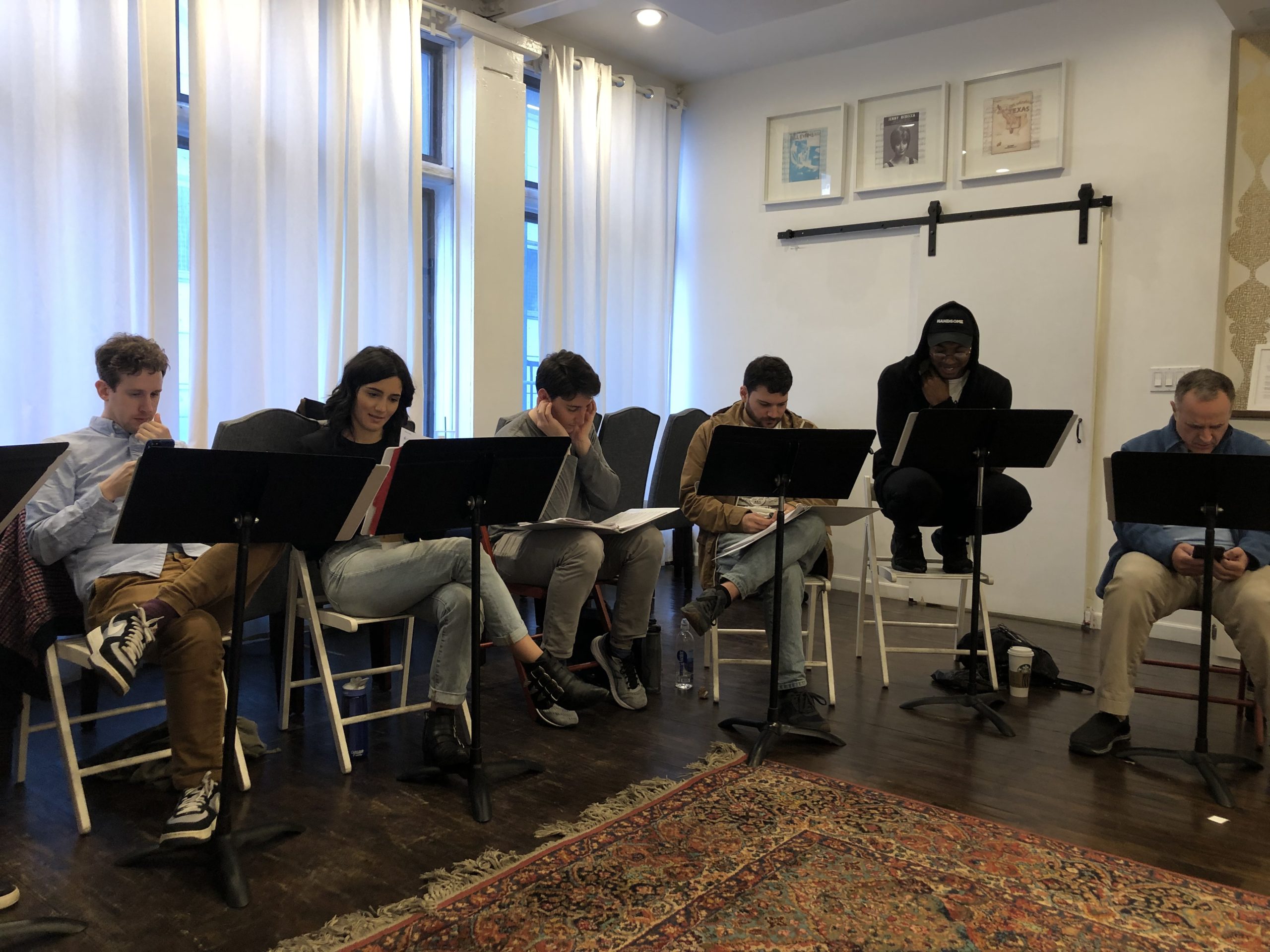
Can you tell me a little about your Jewish background and upbringing?
My mom’s side of the family is Jewish, and my dad’s side is not. I was barely raised Jewish at all. I truly did not come from a Jewish household. I grew up in rural Georgia, and there wasn’t a synagogue nearby. But it was always present, through my mom and my grandparents. My freshman year at Vanderbilt, I took a Jewish studies class. It was such a turning point in my Jewish life. I started to become really interested in my family and in Jewish identity in musical theater. I actually wrote a paper for this class about musical theater composers who were all Jewish men — I need to go back and look at that paper! Working in the theater has been an entry point into my Jewish identity, especially the rich history and legacy of Jewish composers that I feel like I’m now a part of.
How, if at all, does your Jewish identity shape the way your work as a writer?
The musical tradition within Judaism is so expressive and rich. I don’t know if it influences my music directly, but I’ve thought about Rosalind Franklin’s Jewish identity a lot. She’s known for being so confrontational and so argumentative. Not only did she not shy away from confrontation, she loved it. I attribute that to her Jewish identity. Such an important part of being a Jew is wrestling and grappling with big ideas and not settling for an answer and searching for more truth within something. To me, when I read about how people talk about her, it feels like a flashing neon billboard of who she was as a Jewish woman. She loved to debate — that was where she thrived.
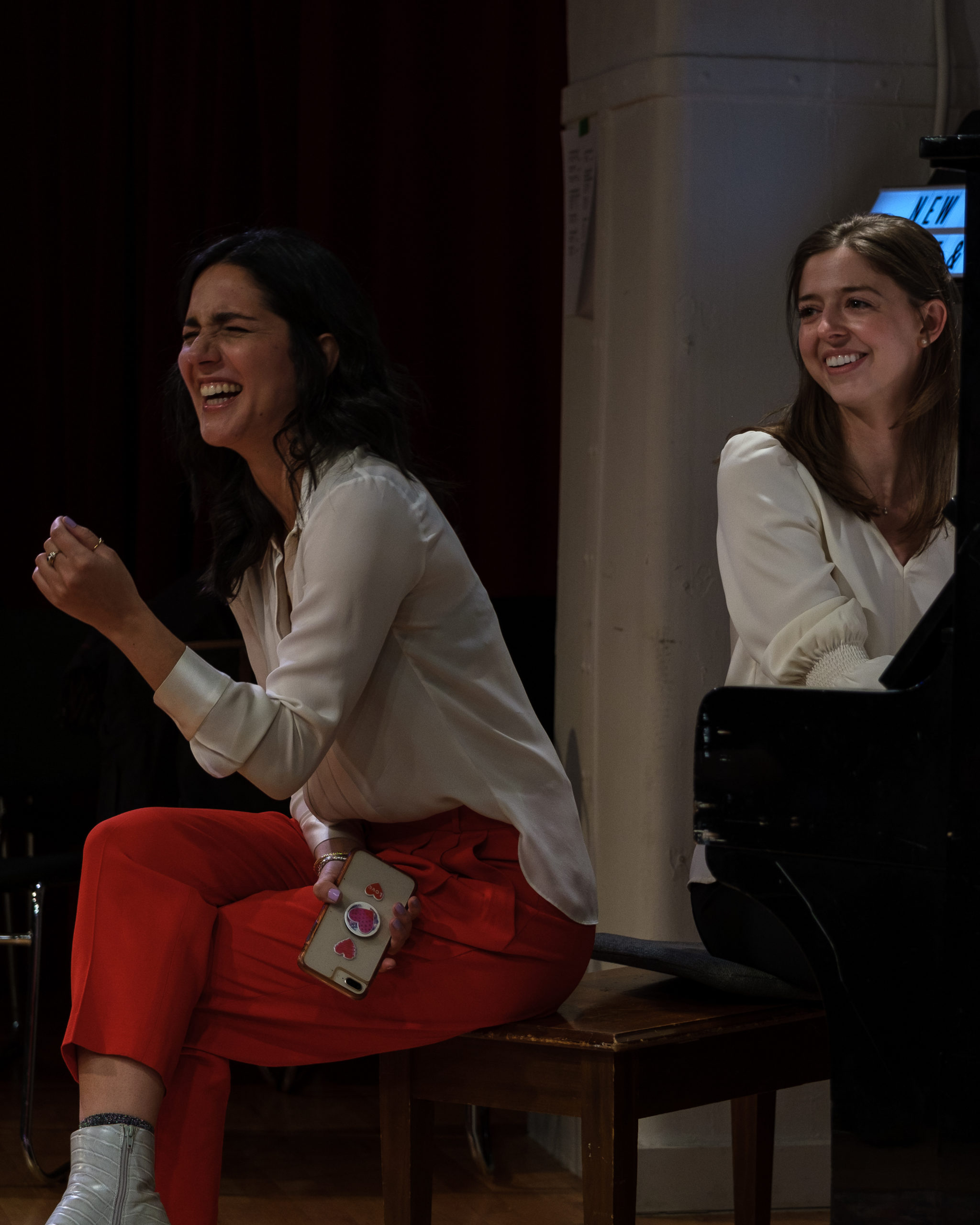
That’s so Jewish! And it makes me wonder if all these portrayals of her as overly confrontational are coming from people who just haven’t been around Jews.
Totally possible. Another thing I think about is that we have our 2020 sensibilities, and she was working in the 1950s. Does that mean that her personality would not have caused any comment in 2020? I wonder if she was merely a woman who was good at her job and had a high standard of excellence, or if she was truly rude and hard to work with. And she might have been a combination of those things. I feel that it’s my job to present a version of her that’s as honest as possible, so the audience can make a decision about where they come down on her prickliness.
Can you talk a little about your collaboration with Jewish actress Samantha Massell, who plays Rosalind?
From the beginning, I’ve been writing this piece for Samantha Massell. I’ve loved her work for a long time, and we’ve become friends. When I started researching Rosalind, I could quickly envision what the show would look like, and it became very clear to me that whoever played Rosalind was going to have to be pretty special because this character is so unusual for the musical theater canon that we’ve seen. From day one, I’ve felt that Sam was the perfect fit for Rosalind because she’s also a Jewish woman. She can embody Rosalind in a way that nobody else could. Collaborating with Sam has been a really important part of the process.
I saw yesterday that Broadway has been shut down for eight months, which is certainly the longest I’ve gone without live theater. What has it been like to be a musical theater writer during this time?
It’s certainly a very difficult time because there are all these actors and musicians and crew members who are out of work. That’s really scary and difficult from a financial standpoint for a lot of people, but also from an artistic standpoint, so I think there’s a lot of hurt and pain in the industry right now. The flip side is that it’s potentially a very exciting time. Instead of a return to a pre-pandemic theater that wasn’t working for everyone, we can build a new theater that is more equitable.
Before I’m a composer, I’m someone who loves to go to the theater. I love being transported to a different place and getting to hear truths that I wouldn’t have heard otherwise. As a theater fan, I’m really excited to see a theater that embodies more perspectives. I think we’re poised to enter a new golden era of theater, not only from writers having generated so much material during this time, but from audiences being so hungry for connection. I’m hopeful about a special time in the theater artistically, in terms of racial justice, and in terms of audiences longing to be back in this magical place where we come together as a community and experience something transformative. Having gone without it for so long, I don’t think we’ll ever take it for granted again.
